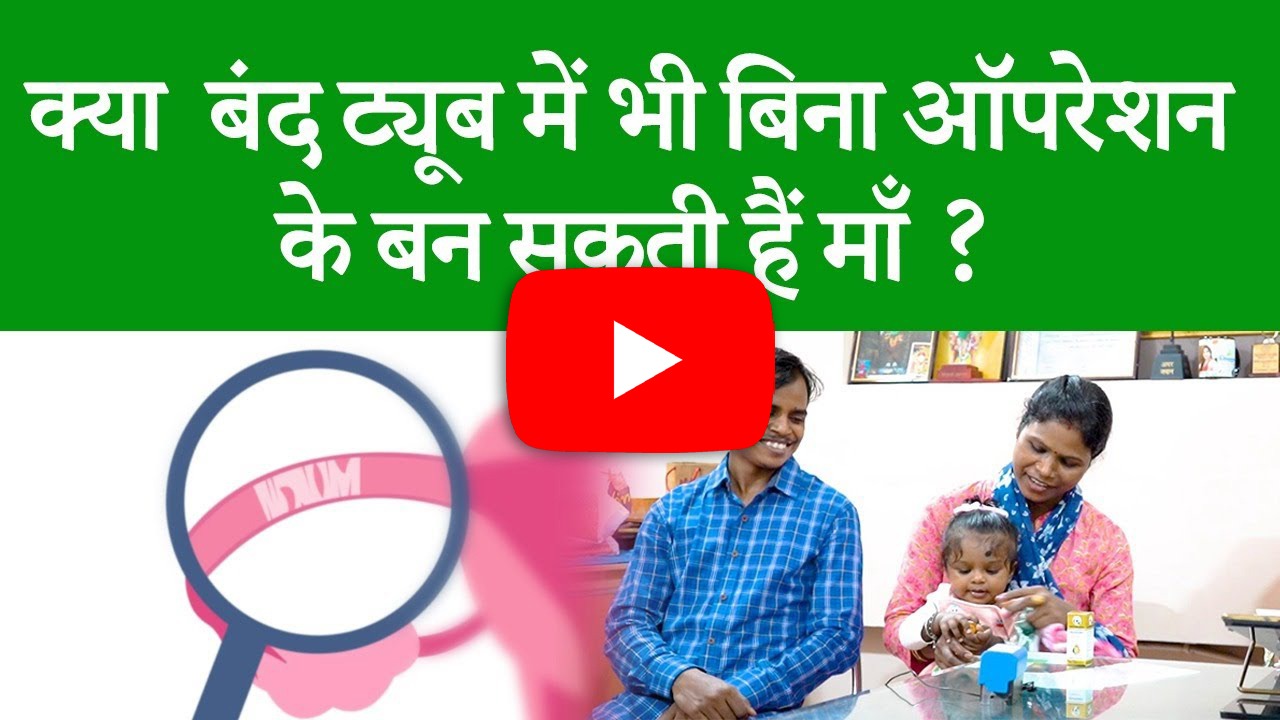Tubal factor (fallopian tubes) infertility
Women ovulate about once every month. When the ovary releases an egg, it stays in the fallopian tube for 12 to 24 hours. If it is fertilized, it implants in the endometrium in the uterus. Otherwise, it is shed during menstruation along with the endometrium.
The egg is usually fertilized in the fallopian tube. And that is why, the fallopian tube is the place for fertilization and also it helps the egg travel from the ovary to the uterus. But remember that the fallopian tube is not the place where a fertilized egg grows. A fertilized egg grows in the uterus.
But a fertilized egg can also start growing in the fallopian tube if it gets fertilized and does not pass through the tube to the uterus. It can happen if the tube is blocked or damaged. In a damaged or blocked tube, if the egg can be fertilized but may remain stuck in the tube, it will begin to grow there.
If the egg begins to grow in the fallopian tube, it is a serious thing and needs urgent treatment. This kind of pregnancy is called an ectopic pregnancy. A blocked or damaged tube can also cause infertility.
Infertility due to some damage or blockage in the tube
If there is some blockage or damage in the tube, it can obstruct the way of the egg and the egg will not reach the uterus. The obstruction can also prevent the meeting of sperm and egg, due to which, the egg will not get fertilized.
Every woman has two ovaries and two fallopian tubes. If only one fallopian tube is damaged or blocked, pregnancy can take place from the other tube. But if both fallopian tubes are blocked, it can cause infertility.
Tubal blockage reasons
There are a few conditions that can cause a tubal blockage. They are:
Fibroids- These are noncancerous tissue that can build in or around the fallopian tubes. They can also develop in or around the ovaries and can also obstruct the blood flow to the uterus. Fibroids do not always cause infertility. In some cases, they can cause infertility. Many women with fibroids, based on fibroid size and location, can give birth without any complications.
Pelvic inflammatory disease (PID)- Certain types of bacteria can cause pelvic inflammatory disease; the most common are Chlamydia and gonorrhea. Bacteria can enter the reproductive tract and cause scarring and swelling in the tissue. If PID reaches the fallopian tube, the scarring and swelling can also block or damage the tube.
Endometriosis- The endometrial-like tissue can build up in other areas of the reproductive system. The endometrium is made of endometrial tissue.
The endometrial tissue store blood, break and bleed during periods, so do the endometrial-like tissue that develop outside the uterus. The development of this tissue in the fallopian tubes can block them.
Sexually transmitted diseases (STDs)- If left untreated, STDs could also cause infertility. If the infection remains untreated, it can possibly reach the fallopian tube and cause damage.
Previous abdominal surgery- Abdominal surgery or unsafe abortion may also be responsible for damage in the fallopian tube.
Previous ectopic pregnancy- In the ectopic (tubal) pregnancy, a fertilized egg gets stuck in the fallopian tube. The blockage or damage could be there after the treatment of the ectopic pregnancy.
Hydrosalpinx- Due to some reason, fluid may get trapped in the fallopian tube. This trapped fluid can block the tube. This kind of fallopian tube blockage is known as hydrosalpinx.
Tubal blockage symptoms
A tubal blockage usually shows no symptoms. Some symptoms may be seen in the case of Hydrosalpinx. In the case of hydrosalpinx, a woman may experience pain in her lower abdomen. This pain could be felt because of the fluid that gets collected in the tube.
Treatment of tubal blockage
In modern medical science, a tubal blockage is usually done through surgery. A woman can also be prepared for intrauterine insemination or in vitro fertilization if natural pregnancy is difficult to take place. Natural treatment of tubal blockage is also possible in Ayurveda.
Fallopian tube blockage treatment without surgery
You can get fallopian tube blockage treatment without surgery in Ayurveda. Ayurvedic doctors treat patients through herbs, therapies, dietary modifications and yoga/meditation.
Uttar basti therapy is a powerful therapy that is given for fallopian tube blockage and other gynecological disorders. The doctor sends medicated decoction into the uterus through a thin pipe through the vagina. This medicated decoction renders its healing effects on the blockage and damage in the fallopian tube.
Herbs are also given for improving fertility and other health benefits. For infertility problems, you can book an appointment with Aasha Ayurveda Clinic.
Takeaway
If you are looking for fallopian tube blockage treatment without surgery, you can take ayurvedic treatment in Aasha Ayurveda Clinic. Infertility natural treatment is also available in this clinic. This clinic also provides treatment for irregular periods, fibroids, endometriosis and other gynecological disorders.




